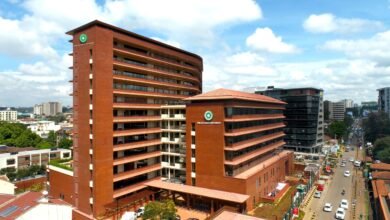
The World Bank (WB) has revised the real Gross Domestic Product (GDP) growth in Sub-Saharan Africa up by 0.2 percentage points in 2021.
According to the World Bank’s Africa Pulse Report, the Sub-Saharan Africa region is projected to rebound to 2.3 percent this year and to 3.1 percent in 2022. This is in contrast with earlier projections where the multilateral lender had estimated a two percent contraction of GDP in 2020.
The projection has been attributed to slower spread of the coronavirus pandemic and other economic indicators including, among others, stronger agricultural growth.
“The second half of 2020 point to rebound in economic activity that explains why the contraction in the region was in the lower bound of the forecasts. It reflected a slower spread of the virus and lower COVID-19-related mortality in the region, strong agricultural growth, and a faster-than-expected recovery in commodity prices.”
Slow spread of virus
However, prospects for a slow COVID-19 vaccine rollout, the resurgence of the pandemic, and limited scope for additional fiscal support, could hold back the recovery in the region.
According to the World Bank, Kenya’s economy is projected to grow in 2021 at 7.6 percent.
“The country is now picking up speed after the COVID-19 shock, but the pandemic has left deep imprints on the country’s fiscal and debt positions.”, said the World Bank’s latest Africa Pulse report.
- 39 million Africans likely to languish into extreme poverty in 2021
- 2021 global trade recovery rests on vaccines; says WTO
Tanzania’s economy is expected to climb up to 5.3 percent as a rollout of COVID-19 vaccines invigorates global economic activity.
“Economic output in Tanzania will expand at between 3-5.3 percent in 2021.”, said Mara Warwick, World Bank Country Director for Tanzania, Malawi, Zambia and Zimbabwe.
WB is calling on Sub-Saharan Africa governments to implement policies to support the economy in the near term which should be complemented by structural reforms that encourage sustained investment, create jobs and enhance competitiveness.
Embracing digital infrastructure
The report noted, “this will have to go in line with reducing the countries’ debt burden which will release resources for public investment, in areas such as education, health, and infrastructure. Investments in human capital will help lower the risk of long-lasting damage from the pandemic which may become apparent over the longer term, and can enhance competitiveness and productivity.”
With digital infrastructure proving to be essential, the region has been challenged to fill the existing gaps and ensure the digital economy becomes more inclusive
“Reforms that address digital infrastructure gaps and make the digital economy more inclusive –ensuring affordability but also building skills for all segments of society, are critical to improve connectivity, boost digital technology adoption, and generate more and better jobs for men and women.”
According to the World Bank, the next twelve months will also be a critical period for leveraging the African Continental Free Trade Area (AfCFTA) in order to deepen African countries’ integration into regional and global value chains.





